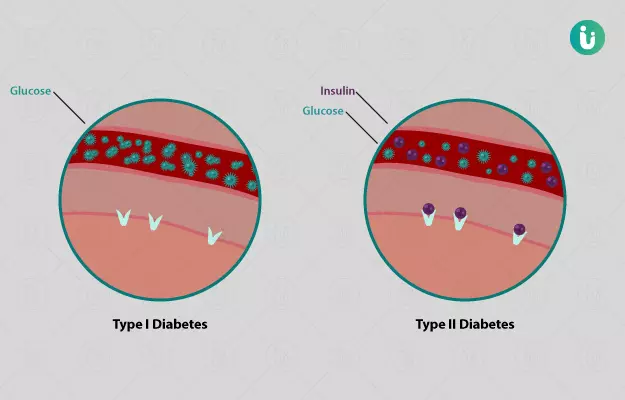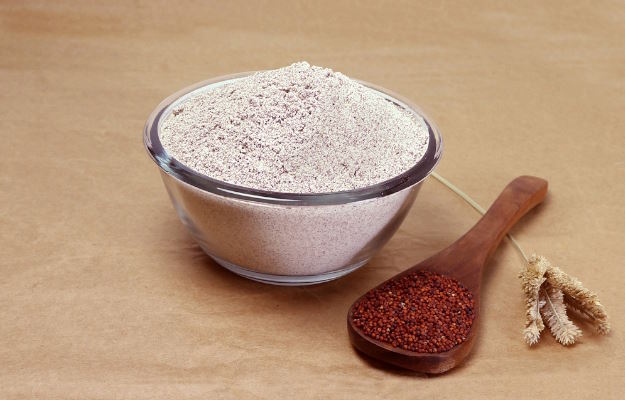The most common form of diabetes is called type 2 diabetes. This is such a common problem, due to which the level of sugar in the blood increases very much. Type 2 diabetes usually occurs in older people, but it can also occur in younger people and even sometimes in children. The symptoms of type 2 diabetes depend on the amount of sugar in the blood.
Please click on this link to know better diabetes treatment.
To diagnose the problem, the doctor asks about your past health information and examines your symptoms. A blood test can also be done to find out the level of sugar in your blood. It is not possible to cure type 2 diabetes, but it can be kept under control with the help of some types of treatment, but some people also have to take medicine to control diabetes.
(Read More - Diabetes diet)
- What is Type 2 Diabetes
- Type 2 Diabetes Symptoms
- Type 2 Diabetes Causes and Risk Factors
- Complications of Type 2 diabetes
- Diagnosis Type 2 Diabetes
- Type 2 Diabetes Treatment
- Type 2 Diabetes Prevention Tips
- Takeaway
What is Type 2 Diabetes
Type 2 diabetes is a long-term medical condition in which the level of sugar or glucose in the blood becomes too high. In type 2 diabetes, the body's cells don't respond as well to insulin as they should.
(Read More - Diabetic Dyslipidemia)
Type 2 Diabetes Symptoms
Many people do not feel any symptoms of type 2 diabetes, while some signs are ignored as signs of old age. That's why type 2 diabetes is often detected only during the investigation of another disease. People with type 2 diabetes often experience the following symptoms -
- Feeling fatigued and lethargic
- Always hungry
- Increased thirst
- Frequent urination, especially at night
- Skin infection
- Blurred vision
- Unexplained loss of body weight
- Headache
- Feeling dizziness
- Leg cramps
- Itching around the genitals
- Cuts or wounds on the skin take longer to heal
- Frequent mood swings
- Formation of dark spots on the skin. Some people with type 2 diabetes develop dark spots on the thighs and neck.
(Read More - Diabetic Ketoacidosis)
Type 2 Diabetes Causes and Risk Factors
In the body of a healthy person, the pancreas makes insulin, with the help of which the body stores and uses the sugar obtained from the food. Type 2 diabetes is often caused by the following conditions -
- When the pancreas stops making insulin.
- When the pancreas makes very little insulin and the body does not make as much insulin as it needs. In such a situation, instead of going into the sugar cells, it starts accumulating in the blood.
- When the body does not respond properly to insulin, this condition is called “insulin resistance”.
- When glucose builds up in the blood instead of going into the cells, it causes damage to many parts of the body. If the cells do not get insulin according to their requirement, they cannot work properly.
(Read More - Diabetic Nephropathy)
There are some factors that increase the risk of developing type 2 diabetes, such as -
Weight
Being overweight is the main risk factor for type 2 diabetes. The more fatty tissue you have, the more resistant your cells become to insulin. However, it is not necessary that type 2 diabetes occurs only when there is obesity.
(Read More - Diabetes Insipidus)
Polycystic Ovarian Syndrome
In women, polycystic ovarian syndrome (PCOS) increases the risk of type 2 diabetes.
(Read More - Homeopathic treatment for Diabetes)
Lack of movement in the body
The less physically active you are, the higher your risk of developing type 2 diabetes. Physical activity helps the body use glucose as energy, which makes your cells more sensitive to insulin. By doing physical activity, your body weight also remains normal.
(Read More - Glucose Tolerance Test)
Abdominal fat accumulation
If your body fat is stored more in the abdomen than in the hips or thighs, your risk of developing type 2 diabetes increases.
(Read More - Diabetic Gastroparesis)
Family problem
If one of your parents or siblings has type 2 diabetes, you are at an increased risk of developing the disease.
Age
Your risk of developing type 2 diabetes increases as you age, with the risk, usually peaking only after age 45. This happens because after this age people often reduce exercise etc., due to which the muscles start to weaken and the weight starts increasing. But type 2 diabetes can occur in younger people, teenagers, and even children.
(Read More - Ayurvedic treatment for Diabetes)
Complications of Type 2 diabetes
In most people, type 2 diabetes can be kept under control. Type 2 diabetes affects all the organs of the body, which can lead to the development of the following serious problems -
- Skin conditions - Type 2 diabetes greatly increases the risk of developing skin problems, including bacterial infections and fungal infections.
- Hearing problems - Hearing problems are also common with type 2 diabetes.
- Cardiovascular diseases - These can cause problems like high blood pressure, narrowing of the arteries, angina, heart attack, stroke, etc.
- Kidney problems - These mainly causes problems like kidney damage and kidney failure.
- Eye problems - This can lead to cataracts, glaucoma, reduced vision, and even blindness.
- Nerve damage (Neuropathy) - In this, the hands and feet become numb and the sensation decreases, as well as digestive problems, such as vomiting, diarrhea, constipation, etc.
- Leg damage - Damage to the veins of the legs or insufficient blood flow to the legs increases the risk of many complications related to the legs. If any type of cut or wound etc. on the skin is left untreated, it can lead to serious infection, which takes a long time to heal. In some severe cases, doctors may have to amputate a toe, an entire foot, and even a leg.
(Read More - Diabetes in children)
See Similar Category Medicines Here
Diagnosis Type 2 Diabetes
During the test, the doctor may do the following types of blood tests -
Oral Glucose Tolerance Test
For this test, the patient has to stay empty stomach overnight, and then a fasting blood sugar test has to be done in the morning. After that the doctor makes the patient drink some sweet drink and after that, the sugar level is checked every two hours.
If the blood sugar level is less than 140 milligrams per deciliter, then it is considered normal. A level of 140 to 199 milligrams per deciliter is considered prediabetes and a level of 200 milligrams per deciliter or more are considered type 2 diabetes.
(Read More - Diabetic Foot Ulcer)
Fasting Blood Sugar Test
To do this test, a blood sample is taken early in the morning after the patient has had an empty stomach for the whole night. In this, if the sugar level is coming in the result of the test at 100 milligrams per deciliter, then it is called a normal condition. If the sugar level is coming from 100 to 125 mg per deciliter, then it means you have prediabetes. If after testing twice, the level of sugar is coming to 126 mg per deciliter or above both times, then it means that you have type 2 diabetes.
(Read More - Gestational Diabetes)
Random Blood Sugar Test
In this test, a blood sample is usually taken from the body at any point in time. Blood sugar levels are measured in milligrams per deciliter (mg/dL). Regardless of what you have eaten and when you have eaten, if the result of your blood sugar test is 200 mg per deciliter or above, then it means that you have diabetes. Especially if you are also experiencing diabetes-like symptoms, for example, frequent urination and extreme thirst.
(Read More - Hyperglycemia)
A1C Test
With the help of this test, it is known what has been the average sugar level of the patient for the last three months. This test is known by many names such as hemoglobin A1c, HbA1c, glycated hemoglobin, glycosylated hemoglobin test, etc. You can eat anything normally before having this test. When it comes to doing an A1C test to diagnose type 2 diabetes, doctors calculate age or find out whether you have anemia or other blood problems.
For people who have anemia, the result of the A1C test is not accurate in them. If the A1C level is above 6.5 percent in both results after two A1C tests, it means that you have diabetes. If the result falls between 5.7 to 6.4, it indicates "prediabetes" which means you are at high risk of developing diabetes. A level below 5.7 is normal.
(Read More - Diabetic retinopathy)
Type 2 Diabetes Treatment
However, sometimes eating a healthy diet and exercising regularly is not enough to lower blood sugar. Type 2 diabetes is a progressive disease. That's why you may need medicines to keep blood sugar under control. These medicines can be as follows -
- Metformin - Metformin medicines reduce the level of blood sugar and with the help of these medicines the body also starts responding well to insulin.
- Alpha-glucosidase inhibitors - These medicines help you to break down starchy food in the body, like acarbose and miglitol, etc.
- Sulfonylureas - It helps in making more insulin in the body.
- Meglitinides or Glinides - These are short-acting, fast-acting drugs that stimulate the pancreas to make more insulin. These include nateglinide and repaglinide etc. (Read more - Treatment of sugar in pregnancy)
- Thiazolidinediones - These drugs make you more sensitive to insulin.
- Dipeptidyl Peptidase-4 Inhibitors - These medicines are used to reduce the level of sugar in the blood, these medicines are not very strong like alogliptin, etc. (Read more - Treatment of diabetic foot ulcer)
- Glucagon-like peptide-1 receptor agonists - These medicines reduce digestive power and improve blood sugar level. For example, albiglutide and dulaglutide.
- Sodium-glucose transporter-2 inhibitors - With the help of these medicines, the kidneys are prevented from re-absorbing sugar in the blood and the sugar is removed from the body through urine.
(Read More - Fructosamine Test)
Type 2 Diabetes Prevention Tips
Type 2 diabetes prevented with the help of some of the measures given below -
- Learn about its causes, and risk factors, and find out how serious it is.
- As you grow older, it is important to get in the habit of regularly checking blood sugar, blood pressure, and blood cholesterol level.
- Drink plain water instead of sweetened beverages
- Excess fat in the body, especially if there is fat in the abdomen, increases resistance to the hormone insulin.
- Do not eat fast food, junk food, and food cooked outside, or at least eat it.
- Drinking alcohol can lead to weight gain and can also increase your blood pressure.
- Regular exercise is very important to prevent type 2 diabetes. Do some exercise on most days of the week, by doing this, the level of sugar in the blood decreases and it also improves the level of blood pressure and cholesterol.
- Include foods rich in fiber in your diet.
- If you want to avoid type 2 diabetes, keep your body active and avoid being sedentary.
- People who smoke have twice the risk of developing type 2 diabetes than people who do not smoke.
- Most people have normal blood pressure by exercising regularly, eating a healthy diet, and maintaining healthy body weight. In some cases, medication may also have to be taken by the doctor to keep the condition under control.
(Read More - Glucose Challenge Test)
Takeaway
Type 2 diabetes should not be ignored. Of course, this problem cannot be eradicated from the root, but it can definitely be controlled. For this, it is necessary to take the medicine regularly on the advice of the doctor. Along with this, it is also necessary to do exercise, yoga, and meditation daily. Apart from this, a good diet should also be taken.
(Read More - Insulin Test)
Doctors for Type 2 Diabetes - Symptoms, Causes, and Treatment

Dr. Pratyush kumar
Diabetology
10 Years of Experience

Dr. J.N Naidu
Diabetology
51 Years of Experience

Dr.Jainaa Khedawala
Diabetology
2 Years of Experience































